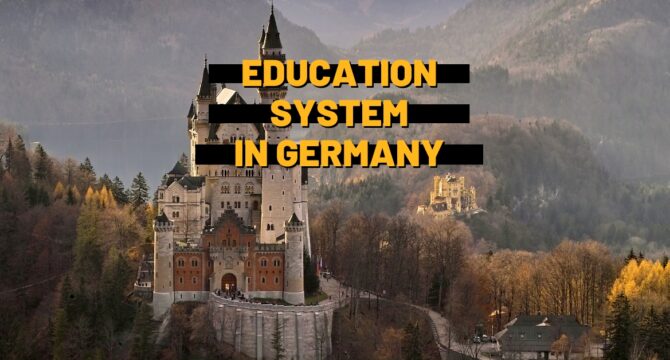
20.08.2025
The Education System in Germany – How Does It Work?
You may have already read our articles about education in different countries around the world, like the USA, Singapore, Finland, the UK, and more. Now it’s time for Germany. This topic is especially interesting because Germany is not a fully centralized country. Education policy is decided by each federal state (Land). While the overall framework stays the same, many details differ depending on the state.
Stages of Education in Germany
Kindergarten
Kindergarten is not mandatory in Germany. It’s available for children aged 3 to 6, and parents usually pay tuition fees, which vary by state. The goal is to support children’s social, emotional, physical, and mental development, and to prepare them with basic skills needed later in school.
Primary School – Grundschule
Children start Grundschule at the age of 6. This is the first stage of compulsory education. Grundschule usually includes grades 1–4 (in some states 1–6). In the early grades, pupils are assessed with written feedback instead of grades. Later, depending on the state, they may either continue with descriptive feedback or receive grades on a scale from 1 (very good) to 6 (very poor). The curriculum covers German, math, science, a first foreign language, art, PE, and in some states, religion. At the end of Grundschule, teachers give recommendations about which type of secondary school the child should attend.
Secondary Schools
Secondary school is when the German system begins to split into different paths. This happens earlier than in Poland – at around age 10. Students can continue with general education or move toward vocational training. Secondary education is divided into lower and upper levels. Lower secondary is still compulsory, while upper secondary is optional. The main types of schools are:
-
Gymnasium – the most academically demanding, offering broad education. Students usually go here if they did well in primary school. Gymnasium ends after grade 12 or 13 with the Abitur (final exams), which allows entry to university.
-
Hauptschule – focused on practical skills and preparing for technical or craft professions. It usually ends after grade 9 or 10. Graduates can then enter vocational schools (Berufsschule) to earn a professional qualification, or start an apprenticeship (Ausbildung).
-
Realschule – offers broader education than Hauptschule and allows students to continue in vocational schools or technical programs. With good results, students can also transfer to Gymnasium and eventually take the Abitur.
Higher Education
Higher education in Germany includes not only universities but also applied science universities (Fachhochschulen) and art schools.
Homeschooling in Germany? Expect Fines
A unique fact about Germany is that homeschooling is almost entirely banned. Compulsory schooling has existed since 1919, and homeschooling is only allowed in very rare cases. Parents who break this law risk fines. Some families have tried to fight it. For example, in 2003 a German couple took their case to the European Court of Human Rights, arguing that school education in Germany conflicted with their religious beliefs because it included sex education. In 2005, the court ruled against them, stating that the ban on homeschooling was justified.
Germany vs. Poland – What Are the Key Differences?
The biggest difference is that Germany does not have one national curriculum. Each federal state decides on its own. Another major difference is how early children must choose their secondary school path, which can shape their whole future. In Poland, homeschooling and alternative education are becoming more common, but in Germany they remain very restricted.
Other differences include:
-
Shorter summer holidays – in Germany, summer break is only 6 weeks (compared to about 9 in Poland). However, German students have more breaks spread throughout the year, like autumn, winter, and Pentecost holidays. The exact dates vary by state.
-
Teaching style – Polish schools focus heavily on theory and memorization. German schools put more emphasis on practical skills and soft skills, with less rote learning.
We also recommend our Direction: World series in Polish, where you’ll find information about studying abroad and opportunities to study in different countries.
Do you believe our work matters and want to support our mission? Become our patron on Patronite and help us share knowledge with those who need it!
Sources:
-
Eurydice.org.pl, Education Systems in Europe: Germany
-
Polish-German Youth Cooperation, Education in Germany
-
Barbara Wesoła, Education in the World: Germany
